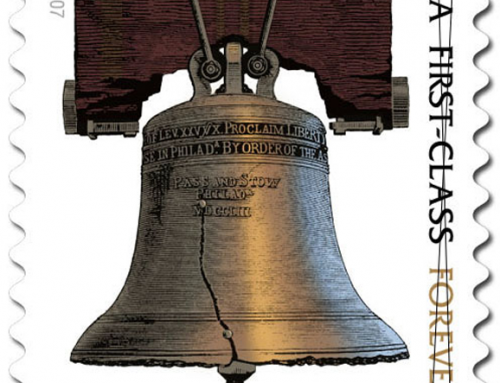Massachusetts Labor Relations Reporter (January – March 2016 Decisions)
Management Commentary
By
Leo J. Peloquin, Esq. & Joshua R. Coleman, Esq.
Collins, Loughran & Peloquin, P.C.
City Required to Produce Records to Union Even When City’s Attorney’s Copied on Communications
In City of Boston v. Municipal Police Patrolmen’s Assoc. IBPO Local 650, 42 MLC 187 (Feb. 10, 2016) the DLR found the City violated Chapter 150E by failing to provide certain information to the Union that was necessary for arbitration. Specifically, the Union sought three (3) unredacted e-mail messages regarding a proposed memorandum of understanding (“MOU”) on paid detail assignments at the Government Center construction project. The Union employees, a separate bargaining unit from the City known as MPS, which provide security services for certain City buildings. The Government Center area is allegedly within the jurisdiction of their assignments.
The City and Massachusetts Bay Transportation Authority (“MBTA”) signed an MOU back in October 2013 regarding paid details for the Government Center project, granting assignments to City and MBTA police, not MPS. In April 2014, the Union filed a grievance asserting that MBTA and Boston police were working paid details that were the responsibility of its Union’s members. The City denied the Union’s grievances, and filed for arbitration.
The Union requested the unredacted versions of the e-mails (between the Deputy Commissioner for Property and Construction Management, a supervisor of Security Services, and a police sergeant) as preparation for arbitration; however, the City refused, averring them protected by attorney-client privilege where the communications were initiated by City attorney William Sinnott (“Sinnott”), Corporation Counsel, who reached out to City employees for input in narrowing the MOU. Following an in camera review, the Hearing Officer determined such privilege was inapplicable and ordered the City to produce the e-mails where Sinnott included several City employees on the e-mails about the MOU and never instructed the recipients that said communications were confidential. Additionally, the City took no steps to prevent inadvertent disclosure of information in the e-mails, which occurred when one of the e-mails was forwarded to a non-City employee and member of another bargaining unit.
Specifically, the DLR found the Union met its burden in showing the e-mails were relevant and reasonably necessary to proceedings where none of the non-attorney e-mail participants were instructed as to the confidentiality of the e-mails. Additionally, the City was found to have waived their asserted privilege by including a non-City employee and third party on several of the e-mails. Consequently, the City was unable to demonstrate legitimate and substantial concerns for confidentiality, and ordered to produce the unredacted e-mails which were initiated by one of the City’s attorneys.
Employer Required to Produce Information Concerning Pending Investigation
In Commonwealth of Massachusetts/Commissioner of Administration and Finance, Department of Correction and Massachusetts Correction Officers Federated Union, 42 MLC 197 (Feb. 10, 2016), the DLR Hearing Officer found the Employer violated M.G.L. c. 150E by failing to provide relevant and reasonably necessary information to the Union.
The Union represents uniformed staff members at Bridgewater State Hospital (“BSH”), a facility operated by the Commonwealth and Department of Corrections (“DOC”). In August 2014, the Union became aware that a state agency, the Disabled Persons Protection Commission (“DPPC”), began investigating BSH employees and Union members for alleged misconduct. Consequently, the Union requested documentation related to the pending investigation from the DOC, who only provided three redacted forms. The Union sent several e-mails to DOC counsel following up on the remaining documentation they requested, many of which went unanswered. The Union filed a charge for the Employer’s failure to provide information within a reasonable time period.
Nearly eleven (11) months after the initial request and one (1) day before the DLR hearing, the DOC provided several more redacted forms, not fully compliant with the Union’s request. The DOC contended that it had met all of the Union’s documentation demands, and offered no explanation for the delay. The DLR found that the redacted forms the DOC provided to the Union were unresponsive to the document requests, and constituted an unreasonable delay of nearly a year. Accordingly, the DLR ordered the DOC to provide the Union with the requested information.
Arbitrator Upholds Employer’s Right to Select Most Qualified Candidate
The DLR upheld the employer’s right to select the more qualified less senior applicant in Quincy Housing Authority and AFSCME, Council 93, 42 MLC 203 (Feb. 12, 2016).
In May 2015, the Quincy Housing Authority (“QHA”) posted a vacancy for an Accounts Payable Clerk position. Four (4) current employees applied for the position. Ultimately, the QHA hired Joan Murphy (“Murphy”) who had only been employed with QHA for nearly a year, but had approximately eighteen (18) years’ experience in accounting with another employer.
The grievant, Kathleen Shannon (“Shannon”), had worked for the QHA since 2001, and the Finance Department since 2002. The Union averred that QHA’s decision to hire Murphy was arbitrary and capricious where Shannon was more qualified and had more seniority. The Union also alleged that the employer did not call Shannon’s references, took less notes in Murphy’s interview, and Murphy was the only candidate not to send a thank you e-mail following her interview.
The DLR was not persuaded by the Union’s allegations of impartiality concerning the interview process, in that the QHA called none of the applicants’ references, and sending a thank you e-mail was not a requirement.
In regards to the seniority argument, the parties’ CBA states that “When two or more bargaining unit employees appear equally well qualified for any position, preference shall be given to the employee with the greatest seniority.” QHA only needs to take into consideration an applicant’s seniority if two candidates are equally qualified. Here, the employer determined that Murphy possessed broader office and bookkeeping experience, even though Shannon worked for QHA longer. The DLR denied Shannon’s grievance.
Employee Bargained In Good Faith to Impasse Over Layoffs and Transfer of Bargaining Unit Work
In Everett School Committee and Everett Teachers Association, 42 MLC 206 (Feb. 16, 2016), the Union alleged that the Committee implemented layoffs of speech-language and occupational therapists without providing notice to the Union or opportunity to bargain to resolution over impasse, and that they wrongly transferred duties outside the bargaining unit.
In late February/early March 2009, the School Committee projected a $3.1 million dollar deficit. When the School District met with the Union to discuss waiving the unit members three (3) percent raises for the following year to save money, the Union declined.
In March 2009, the Committee contracted with Futures Healthcore, LLC (“Futures”) to conduct a clinical and educational services analysis. Futures had a fixed consultation fee of $18,500, which would be waived if the Committee subsequently hired Futures to perform services at an annual minimum of $500,000. At the time, there were ten (10) unit member speech-language therapists. The Committee also contracted with a private vendor, Hart, to supplement speech-language, occupational, and physical therapy services.
In or around April 2009, the School District met with Futures, who provided the results of their analysis and service proposals that would save the School District roughly $1.8 million over the next two (2) fiscal years. In regards to speech-therapy services, Futures proposed an agreement to use their employees in place of unit members and Hart employees, saving the District about $465,000 over two (2) years. Later that month, the Committee voted to privatize the speech-language positions.
In May 2009, the Union contacted the Committee’s labor counsel and stated they needed to bargain over the elimination of the positions. They met the following month, and the Committee offered several concessions that could save the eliminated speech-therapy positions, such as teachers reducing the amount of their raises or taking furlough days. The Union rejected the Committee’s proposal. Shortly thereafter, the Committee notified the speech-language therapists and Hart employees that their positions were being eliminated. The Union filed a ULP.
The Hearing Officer also rejected the Union’s claim that the Employer provided insufficient time to bargain after notice of the layoffs, where the Employer provided notice to the Union approximately two months before the layoff letters and three months before executing a contract with Futures.
The Hearing Officer found the Committee gave notice to the Union’s counsel as early as April 2009, and numerous e-mails between Committee and Union attorneys demonstrated adequate notice. Additionally, the Committee attempted to negotiate the layoffs with the Union – causing the DLR to reject the Union’s assertions that the Committee failed to bargain in good faith.
Where neither party contended that they bargained to resolution, the DLR next addressed whether they negotiated to impasse. While the Union contended the parties only met on one occasion and as much could not have negotiated to impasse, the DLR’s review of the record showed the parties discussed the layoffs and outsourcing on five (5) different occasions, not including any e-mail or telephone communications. The Hearing Officer’s decision noted that “the Union never made any proposals, including making proposals about alternative means to save money rather than laying off the therapists and outsourcing their duties.” Consequently, the parties were deadlocked and reached impasse. Thus, the Hearing Officer concluded that the Employer did not violate the law concerning the layoffs and transfer of work outside the bargaining unit and had negotiated to impasse.
City Required to Bargain Over Conditions of Employment of Probationary Firefighters
The CERB affirmed the DLR Hearing Officer’s decision in City of Newton v. Newton Firefighters Association, 41 MLC 262 (Mar. 16, 2015) that the City of Newton violated the law by ordering firefighters on probation (FFOP) to attain Firefighter I and II certification as a condition of continued employment without providing the union with prior notice and an opportunity to bargain.
The City issued probationary firefighters a letter in 2011 requiring them to attain Firefighter I and II certification by the end of the first year of their employment, which the Union objected to, arguing the certification requirement was a condition of continued employment and thus a mandatory subject of bargaining.
On appeal, the City contended it had the right to act unilaterally because “1) the certification requirement was a condition of hire not subject to bargaining; 2) the Union waived its right to bargain by contract; and 3) Sections 34 and 61 of M.G.L. c. 31 impose this requirement during the firefighters’ twelve-month probationary period, thus precluding bargaining over this issue.” The CERB, however, remained unpersuaded: the certification requirement could only be completed post-appointment, the Union waived no rights to bargaining, and the City wrongly interpreted the language of M.G.L. c. 31 Sections 34 and 61. The City argued that bargaining over this issue conflicted with Sections 34 and 61, which address probationary periods and transitioning to tenured employment. However, the Hearing Officer determined the statutes contained no language precluding bargaining on the issue, and the City blended their right to determine which employees get tenure and determining the terms and conditions of employment. Accordingly, the CERB upheld the Hearing Officer’s decision and ordered the City to bargain in good faith and restore the prior practice of not having FFOPs become Firefighter I and II certified by the end of their probationary period.



